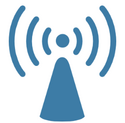(→Eduroam) |
|||
| (One intermediate revision by one other user not shown) | |||
| Line 7: | Line 7: | ||
Eduroam is an on-campus connection accessed through a wireless access point. All CAEDM and University services should be accessible after authenticating. Wireless service is funded, maintained and controlled by the university's Office of Information Technology. Eduroam requires client computers to be up-to-date on operating system patches and virus definitions to connect. | Eduroam is an on-campus connection accessed through a wireless access point. All CAEDM and University services should be accessible after authenticating. Wireless service is funded, maintained and controlled by the university's Office of Information Technology. Eduroam requires client computers to be up-to-date on operating system patches and virus definitions to connect. | ||
| − | [https:// | + | [https://support.byu.edu/it/en/eduroam-and-byu-wifi-master-kb?id=kb_article_view&sysparm_article=KB0029570 Eduroam and BYU WiFi Master KB] |
===BYU Guest Wireless=== | ===BYU Guest Wireless=== | ||
| Line 20: | Line 20: | ||
===Off-campus=== | ===Off-campus=== | ||
| − | Access to CAEDM and University computing resources may be limited from off-campus. [[ | + | Access to CAEDM and University computing resources may be limited from off-campus. [[ZConnect]], and [[SSH]] servers are all directly reachable from off-campus. It would not be possible, however, to directly reach a personal computer in a research lab, or in a professor's office. These computers have private IP addresses that can only be reached from within the university. Reaching a personal computer in an office or lab would require using the [[VPN]]. ZConnect, SSH, and most other CAEDM services do not require the [[VPN]] and may be used seamlessly off-campus. |
Latest revision as of 12:23, 29 April 2025
Access to network resources will vary depending on where a client computer is attached to the network. For security, licensing, or performance reasons, some traffic may be blocked or throttled. This article discusses network access to on-campus resources from both on and off-campus.
Contents
Available network connections
Eduroam
Eduroam is an on-campus connection accessed through a wireless access point. All CAEDM and University services should be accessible after authenticating. Wireless service is funded, maintained and controlled by the university's Office of Information Technology. Eduroam requires client computers to be up-to-date on operating system patches and virus definitions to connect.
Eduroam and BYU WiFi Master KB
BYU Guest Wireless
BYU Guest Wireless provides extremely limited web access to un-authenticated clients while visiting campus. Virtually no CAEDM or University services will function using BYU Guest Wireless, but most off-campus websites will be accessible. Using a VPN over guest wireless will not grant access to more services.
On-campus wired connections within the college
Using an on-campus connection within the college allows connectivity to all CAEDM and University resources. An on-campus network connection is considered within the college when it is directly wired to the campus network inside the Crabtree,Clyde, Snell, Fletcher, or one of the other associated out-buildings. Ethernet connections within the college do not require authentication, but may require some setup. Contact your CSR or more information. Examples of college on-campus connections would include an ehternet jack in a research lab in the Clyde Building, or a wired connection at laptop station in a CAEDM Lab. Do not unplug college equipment to make a connection available for a personal computer. Do not plug unauthorized switches or routers into wall jacks in any college building.
On-campus wired connections outside the college
Do not unplug BYU equipment to make a connection available for a personal computer. Do not plug unauthorized switches or routers into wall jacks in any building on campus. Network jacks in public areas elsewhere on campus are not maintained by the college; restrictions and availability are subject to change without notice.
Off-campus
Access to CAEDM and University computing resources may be limited from off-campus. ZConnect, and SSH servers are all directly reachable from off-campus. It would not be possible, however, to directly reach a personal computer in a research lab, or in a professor's office. These computers have private IP addresses that can only be reached from within the university. Reaching a personal computer in an office or lab would require using the VPN. ZConnect, SSH, and most other CAEDM services do not require the VPN and may be used seamlessly off-campus.




